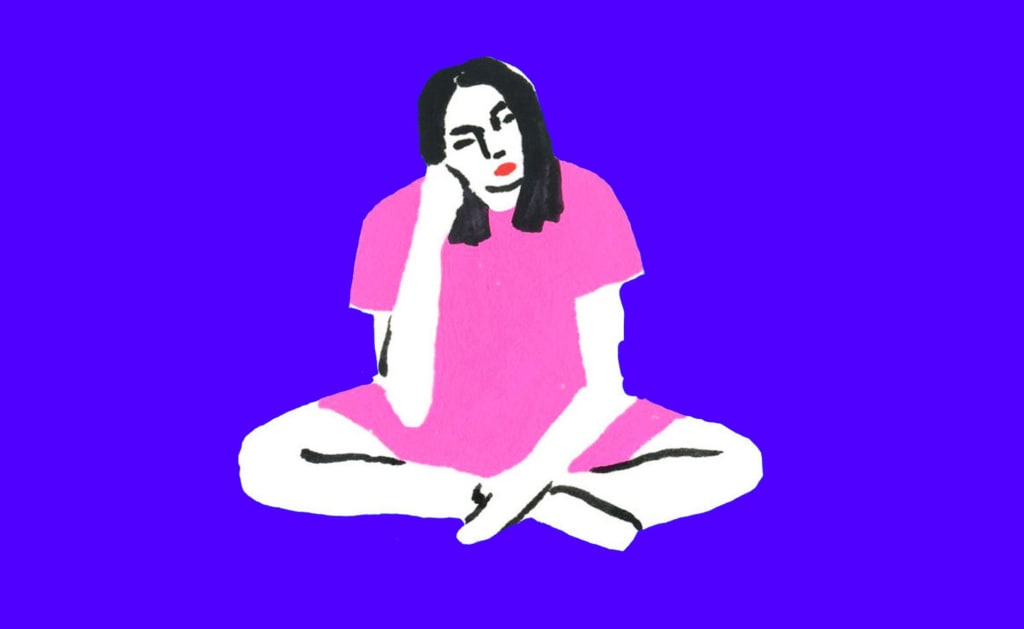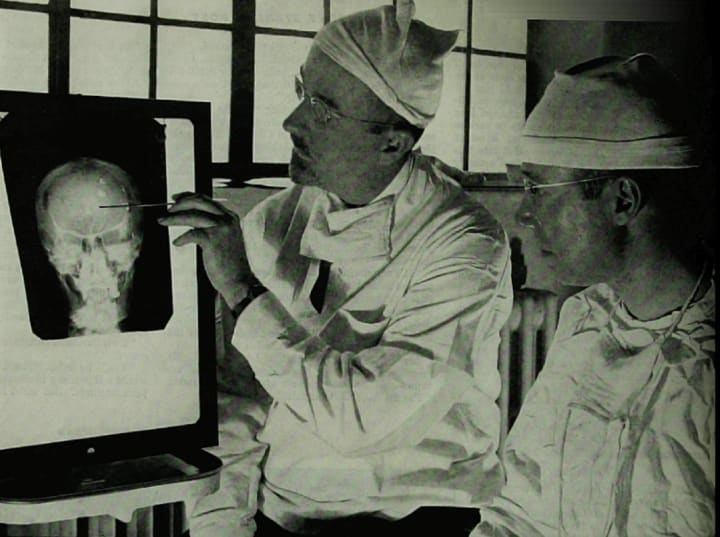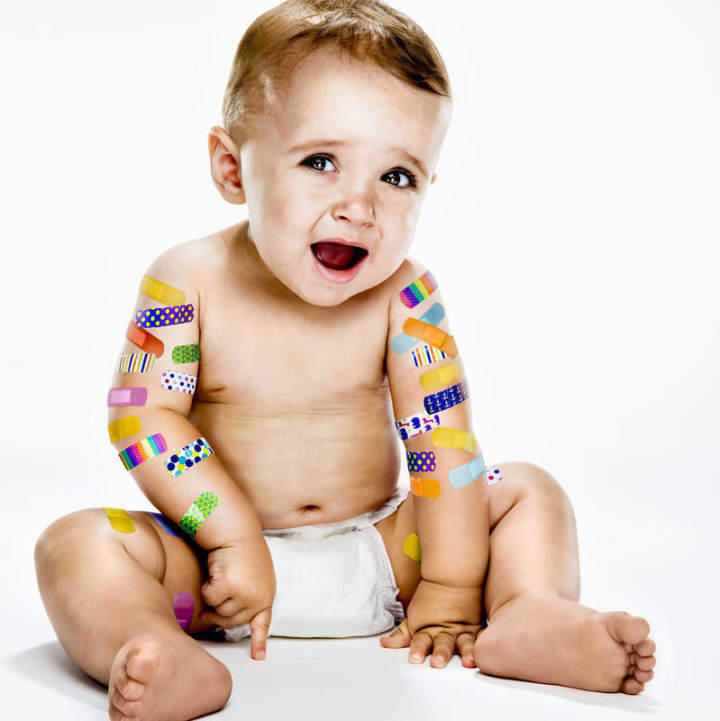Stigma Against Mental Illness
With mental illness being a topic of conversation in many debates, families and media, it's important as ever to address the stigma against mental illness.

"That's nuts," seems to be one of the go-to insults when a person is pushed into a corner. Of course, what many people don't understand is that "nuts" or "crazy" were both terms given to those who were mentally ill. Mental illness seems to be an acceptable target of ire of this nature.
Racial slurs and homophobic comments used to be words that could ruin the lives of those at the receiving end of these comments, but in these changing times, we as a society have realized that certain words cause people real harm. They are associated with very real institutional prejudices that caused many millions real harm.
So why does no one seem to care if your words come at the expense of those who are mentally ill? Why are people with mental illnesses acceptable targets? What's with the stigma against mental illness?
The Power of Words

The stigma people of color bear is well discussed in the media. It's explored territory. Racism has resulted in countless atrocities that remain undiscussed. Slavery is a taboo subject of conversation in parts of the United States, in part because racist people refuse to acknowledge the suffering their ancestors inflicted on others. When people talk about the glory days of the antebellum South, you seldom hear about the slave beatings and dehumanization of an entire people.
Words like the n-word are terrible because they concentrate all that oppressive behavior into a word.
In this same sense, many phrases, like retard, crazy, nutjob, etc... they are phrases that come with a history.
In the old days, people with retardation and autism were both referred to as "idiots," though autistics were referred to as "idiot savants," savant being the French word for "savior." The distinction was something of a term of ranking, as though autistic individuals were by definition superior to those with other learning disabilities. Mind you, with no understanding of the autistic spectrum, they had no concept of "scale." Both high and low functioning autistic individuals were treated the same way.
They were institutionalized.
The word "idiot" holds a very powerful history, then, as to be truly labeled an idiot meant you would be institutionalized.
Now, time passes, and the word idiot becomes so acceptable an insult that scientists create new categories. Idiot savants become autistic savants. Idiots become retards. Scientists thought this would be a far better, more humane way of referring to these people with mental illness.
Shame that the treatment for many years on remained institutionalization.
And those are just learning disabilities. The phrase "schizo" has become a catch-all term for those with mental illness, from those with severe OCD to those genuinely suffering from schizophrenia. It is associated often with characters like Norman Bates from the film Psycho – a character with Dissociative Identity Disorder.
But, like those with autism, people suffering from OCD, schizophrenia, and other mental illnesses were dumped in institutions.
And it is in these institutions that horrible things happened.
Suffer the Little Children

Suffer the Little Children is a 1968 documentary that exposed the horrors of Pennhurst State School and Hospital. Despite its dignified name, everyone knew what it was: a dumping ground for "idiots." Parents of mentally ill children, be they autistic, schizophrenic, or otherwise. Though records were kept, it was clear that few questions were asked. The children did not have the ability to determine their fate.
In Pennhurst, children were left sprawled out on the floor, as they lacked enough beds to take care of them. Clothing was either ill-fitted or nonexistent, and there were hardly enough people on staff to care for the bloating mentally ill population filling the halls.
Rather than educate the children or help them grow into prosperous members of society, to make the most of their lives and passions, the children were left behind.
Laid out in cribs. Dumped in water tanks. Lobotomized. Left in ever-rising piles of their own feces. Some never even learned how to talk or read.
Pennhurst became the subject of national outcry due to the way they treated the mentally ill – less like people, and more like animals. But Pennhurst would not close until the 80s.
When you call a person idiot, you may not be saying that they should go to a place like Pennhurst. No, that's what you say when you call them retarded. When you call a mentally ill person crazy. A schizo. After all, all a parent had to do to convict their child to a life of horror was simply tell a doctor "My child is nuts."
Pennhurst may sound like the worst place for the mentally ill to go.
It wasn't.
Bodily Dismemberment

The Trenton Psychiatric Hospital in New Jersey is a crumbling ruin with a history of cruelty toward the mentally ill. At a time when mental illness was not understood, Dr. Henry Cotton believed the cause of all mental illness was physical infection. The link to physical qualities and mental illness is not a new concept, nor is it the last.
However, Cotton had a very disturbing remedy to "cure" the mentally ill. To fix an idiot savant, one only had to cut out the parts of the child that caused illness.
Cut them out.
He'd take a saw, a scalpel, and carve out the intestines. Chunks of leg. At this time, without anesthesia, the mentally ill person would scream and cry in pain as Dr. Cotton unraveled their flesh until he found the "unhealthy part."
Few of his patients survived. None came of their own free will. A person with mental illness had no consent to give. The mentally well people, like Dr. Henry Cotton, held all the control in the situation.
No one stopped him. In fact, his contemporaries praised Cotton after the doctor claimed he had a high success rate. He had followers who continued his practices into the middle of the 20th century.
No one asked the idiots if they felt better. They weren't capable of saying that.
Or, at least, that's what these people thought.
And all this happened a hundred years ago. This isn't some barbaric, medieval torture to exorcise demons out. This was allowed. The stigma against mental illness continues to this day, but, back then, the stigma was so great that the "idiot savants" had no say in what they could do. The "crazies" needed to be treated.
Lobotomies

Lobotomies were a disturbingly frequent "cure" for mental illness. By driving a pick of steel into the frontal lobe of the brain, one could "cure" people of any mental illness. People who experienced a lobotomy literally had their brain matter scrambled. They would be put into a vegetative state.
This was "better" than being autistic, schizophrenic, or even a little depressed, as society saw it.
And it was disturbingly easy for a parent to force their child to have one. Rosemary Kennedy, sister to then-future president John F Kennedy, was forced to have a lobotomy basically overnight because her father told a doctor to give her one. While some people believe she may have been bipolar, all it took was a word.
Words have power.
And that power can be terrible.
Today is Not Better

Let's make one thing clear: society has not improved.
There is a controversial scene in the movie Tropic Thunder where Robert Downey Jr's character says "Never, ever go full retard." This warranted a lot of controversy, in part due to the history of the word "retard," and its associations with the cruelty dealt to the stigmatized mentally ill.
But, in context, the scene reads differently than if you just take that line out of context.
In the film, RDJ's character is explaining to Ben Stiller's character why his "inspirational" film about a mentally ill person failed hard. He claimed that, by going "full retard," the fictional film portrayed a mockery of mental illness rather than a nuanced, realistic portrayal.
In context, they use the example of the film I Am Sam, an inspirational film about an autistic man. Some people were tricked into thinking it was an inspirational depiction of a mentally ill man. The film makers no doubt thought that, too.
Instead, all they did was portray an exaggerated caricature of an autistic father incapable of living his life, taking care of other people, or anything like that. And every autistic character in the film is portrayed in this same way.
The message? Autistic people can't accomplish anything.
For many reasons, this film reinforces that stigma that the mentally ill need – for their own good – be institutionalized and kept away from normal people. It's for their good.
People still treat the mentally ill with cruelty and mockery. Television shows like The Big Bang Theory have taken qualities commonly associated with autism and other mental illness, and, rather than treat them as elements of the human condition, present them as something farcical. It's no different than a freak show presenting physical deformity for vile fascination.
Autistic Children or Dead Children?

You may be arguing "Oh, but that's the media. That's not real life." But real life is shaped by media, and media is shaped by the popular conceptions already existent in real life.
Consider this for a moment. In real life today, many parents refuse to vaccinate their children due to their belief that vaccines cause autism. I am not going to argue that this pseudoscience has been disproven, that all known studies of this subject have exploited confused parents without using any real documentation or physical evidence. I don't want to give that argument any validity in doing so.
But I will say this. Parents are willing to let their children die of diseases that had almost died out – and let other children die of said diseases by allowing their kids to carry said diseases – because they don't want their kids to have autism.
These parents would prefer dead children to mentally ill children.
And that's just autism. We haven't even begun to get into how many parents refuse to validate their child's depression or bipolar disorders – their schizophrenia or OCD – because they refuse to acknowledge it.
Their actions tell us that these parents would prefer suicidal or dead children.
Don't think there's a harmful stigma against the mentally ill? Then you're living in a dream world.
About the Creator
Anthony Gramuglia
Obsessive writer fueled by espresso and drive. Into speculative fiction, old books, and long walks. Follow me at twitter.com/AGramuglia
Enjoyed the story? Support the Creator.
Subscribe for free to receive all their stories in your feed. You could also pledge your support or give them a one-off tip, letting them know you appreciate their work.






Comments
There are no comments for this story
Be the first to respond and start the conversation.